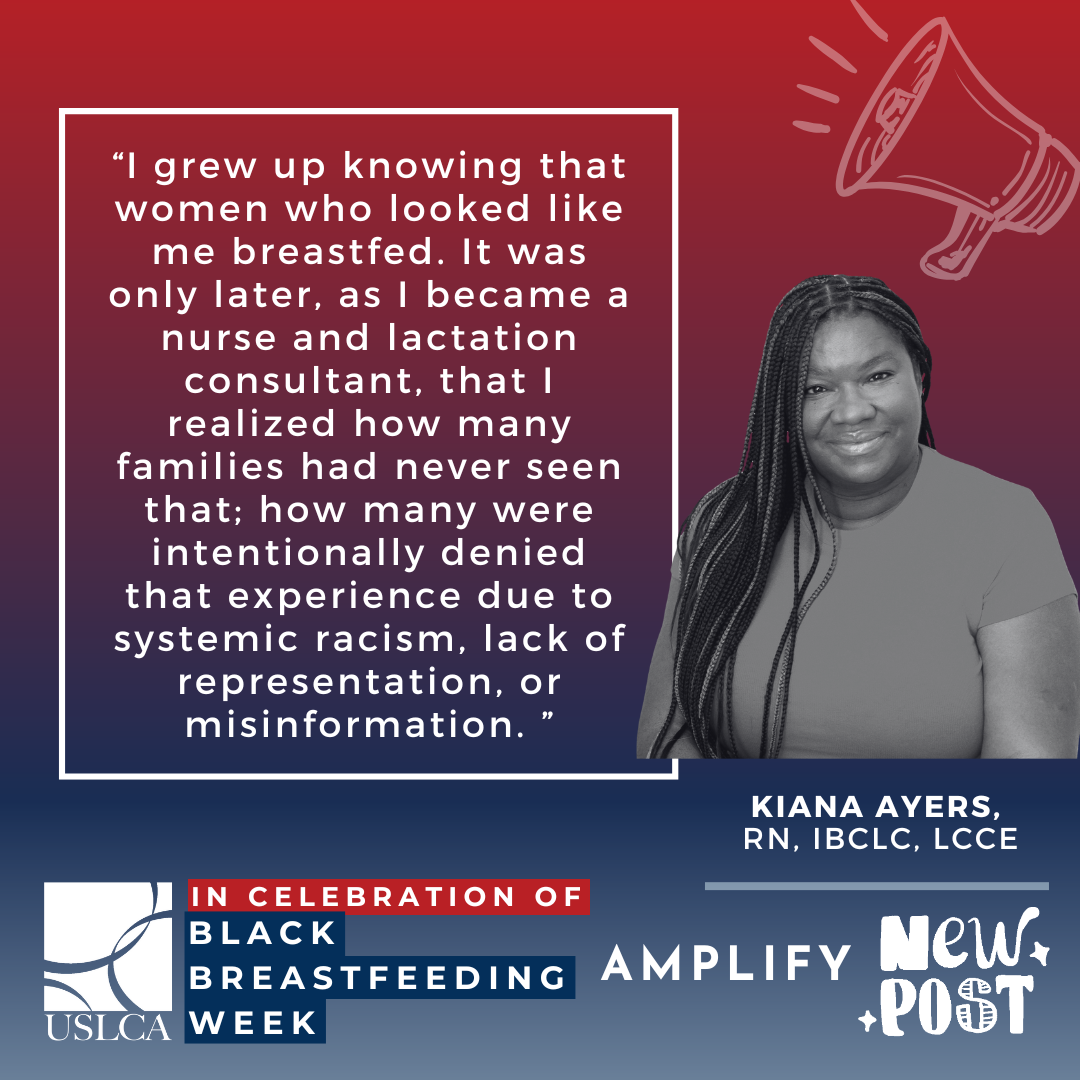By Dr. Kameelah Phillips, OB-GYN, IBCLC
 November 3rd is National Stress Awareness Day – an important reminder to prioritize health and well-being. Mental health and heart health go hand-in-hand, and new parents cannot achieve their healthiest self and properly care for their baby if they are constantly stressed. The Release the Pressure (RTP) Coalition is committed to helping people nationwide improve their heart health by prioritizing self-care and putting their hearts first.
November 3rd is National Stress Awareness Day – an important reminder to prioritize health and well-being. Mental health and heart health go hand-in-hand, and new parents cannot achieve their healthiest self and properly care for their baby if they are constantly stressed. The Release the Pressure (RTP) Coalition is committed to helping people nationwide improve their heart health by prioritizing self-care and putting their hearts first.
Hear from RTP Heart Health Squad member, Dr. Kameelah Phillips, founder of Calla Women’s Health – a board-certified Obstetrician and Gynecologist (OB-GYN), wife, mother, and proud member of the Association of Black Cardiologists, and IBCLC – on ways new parents can manage stress and prioritize their heart health.
- Take Time to Release the Pressure
You can’t function at your best for yourself or your family if you don’t put yourself first. This is especially true for new parents who may try to maintain their previous household responsibilities in addition to their new duties, essentially putting time for self-care on the back burner. It’s critical for new parents to make time to unwind and do things they love, whether it’s reading (baby books don’t count!), meditating, listening to music, taking a yoga class (check out great virtual options!), cooking or watching their favorite show: making time for themselves can make all the difference in their mental health. Encourage them to try one of these 10 stress reduction activities and take 6 minutes for this guided meditation courtesy of Alkeme Health.
One easy way to prioritize self-care is by joining the RTP movement and taking the RTP Heart Health Pledge. Once they do, the RTP Heart Health Squad will support new parents – and all people – in protecting their mental health and overall well-being with tailored resources and heart content to help become their healthiest, happiest selves.
- Prioritize Squad Care
Whether it comes to watching their baby, household chores or running errands, encourage new parents to ask for support from their inner circle to help provide some relief, especially during the first few months after birth. Family members can help reduce stress by meal prepping, cooking, and cleaning so new parents can focus on breastfeeding/chestfeeding or even squeeze in a much-needed nap. When milk supply is well established, encourage them to consider pumping and storing milk so loved ones can feed baby while they take a walk, enjoy a massage, or lunch with friends.
It’s also critical for new parents to stay active (following their provider’s recommendations) and maintain relationships with their squad. Friends and family are key to stress relief and mental health during this time. Be sure to encourage new parents to have loved ones to routinely connect with, close friends, and favorite activities. Whether its planning 30-minute walking dates throughout the week, taking a virtual workout class together or scheduling a weekly phone or Zoom call, a little socialization and activity goes a long way in improving mental health, heart health and overall well-being.
- Build A Dream {Care} Team
Curating a specialized care team beyond OB-GYNs and primary care physicians is critical to help meet unique health care needs. As a new parent, pregnancy and postpartum may present new health conditions that were not previously part of their medical history and impact their postpartum routine. New parents should know that routine care appointments such as dental checkups and other health care visits like blood pressure monitoring should not be put on the back burner. To help them find the best providers, encourage conversations with their primary care physician as well as seeking recommendations for physicians from their inner circle to find someone who can optimize their health care and well-being.
Finding an OB-GYN that they trust can make all the difference in their experience as a new parent. It can certainly help ease the many stressors that come during this time. While it can take time to form a positive relationship with a new provider, remind them it’s important to trust their own instinct and to ask questions based on their unique health care needs.
- Prioritize in-person and follow-up visits
Cardiovascular disease (CVD) is the leading cause of death for women. In fact, more than 50% of Black women over 20 have high blood pressure (HBP) – a precursor to CVD, and that is not okay. Developing HBP during pregnancy is common. Preeclampsia, which is characterized by high blood pressure, swelling of the hands, or protein in the urine is a common and serious pregnancy complication, making it even more critical to keep up with in-person check-ups both during and after pregnancy. It is a strong indicator that postpartum parents should make lifestyle changes now to minimize the impact of heart disease in the future.
Post-partum depression and anxiety can also manifest as stress if not handled properly. Both of these conditions can lead to sleeplessness, which compounds stress for new parents. Sadly, there is a social acceptance of sleep exhaustion for new parents. While we know this role is exhausting, we need to reverse that mindset and create space for new parents to rest. We know sleep is essential for optimal mental and physical health. Let’s encourage sleep as a form of stress relief.
Telehealth or virtual visits can be helpful in certain situations, but they should not be used as a substitute for in-person visits, when possible, especially for new parents. There’s just so much more that can be assessed and determined more accurately in-person, including addressing early signs of health issues such as HBP. In between visits, it’s important for new parents to self-monitor their BP regularly at home using the techniques shared in this short video and this graphic.
Health is wealth, and it’s time for all people across the U.S. to put their hearts first! Say YES to heart health and join the RTP movement at ReleaseThePressure.org.
About Release the Pressure
The national Release the Pressure (RTP) movement is bringing together thousands of Black women from across America — reminding them to make self-care a priority by taking the RTP Heart Health Pledge. RTP was founded in May 2020 by a diverse coalition of health care organizations and heart health experts – the American Medical Association (AMA), AMA Foundation, American Heart Association, Association of Black Cardiologists, National Medical Association and Minority Health Institute – who are dedicated to partnering with the Black community to improve heart health. Join the movement and take the pledge at ReleaseThePressure.org.
About the Author: Dr. Kameelah Phillips is a board-certified Obstetrician and Gynecologist (OB-GYN), wife, mother, and lifelong women’s health advocate. Dr. Phillips graduated from Stanford University with a degree in Human Biology with an emphasis in Women’s Health and Human Sexuality. After graduation, she worked at the San Francisco Department of Public Health in the AIDS office as a Research Assistant on HIV vaccine studies. She relocated to Los Angeles to attend the University of Southern California Keck School of Medicine. Dr. Phillips is an educator, mentor, and expert in women’s health issues. She loves to help women and girls feel comfortable with their bodies, so that they can be aware of changes or new developments. Her areas of specialty include health care disparities, lactation, black women’s care, and sexual and menopause medicine.



